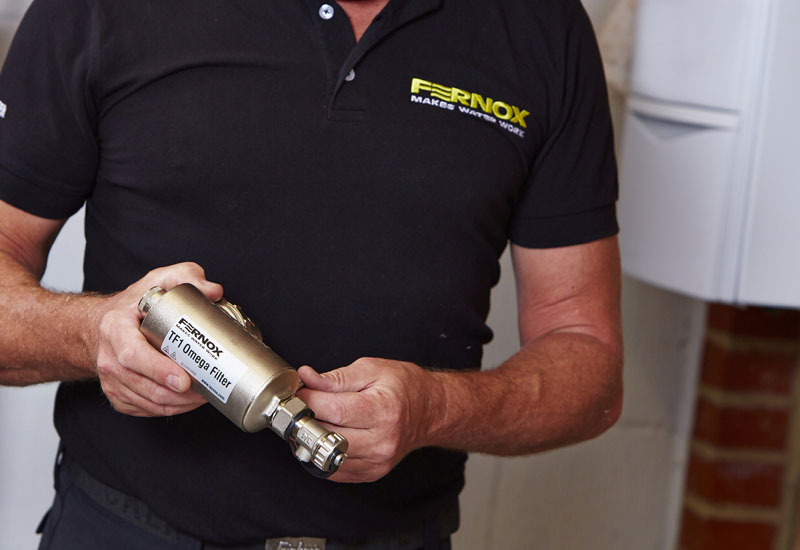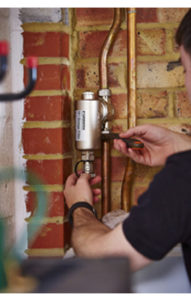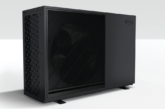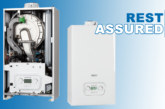
Richard Wall, Technical and Product Director at Fernox reviews how chemical water treatments and filters can be used to avoid a poorly performing heating system.
In 2016 the House of Lords released its ‘Building Better Places’ report for the built environment. Worryingly, the report stated that in many cases UK homes were found to be consuming up to four times their designed energy usage.
Resulting in detrimental economic, environmental and health impacts for those living within the properties, the report concluded that “the Government must set out and implement a viable trajectory towards energy efficiency and carbon reduction in homes.”
Furthermore, following the recently proposed alteration to the European Commission’s Clean Energy Package – increasing the energy efficiency target from 27% to 30% – reducing building energy consumption is of paramount importance.
High energy consumption
According to the Heating and Hotwater Industry Council (HHIC), heating accounts for approximately 65% of all domestic energy use. Impacted by a multitude of factors, heating system energy consumption can increase year on year – if the system is not commissioned and maintained in accordance with legislation and industry best practice.
For modern gas condensing boilers this is significant as, owing to the manner in which the modern boiler design has evolved, the boiler itself and its internal components are considerably smaller. Enabling the recovery of waste gas that previously would have been lost through the flue, compact modern boilers can achieve unprecedented efficiencies.
Blockages
However, with smaller parts comes a greater risk of blockages. If not properly maintained, through filtration and chemical water treatment, debris, sludge and limescale can build up within a heating system. Severely compromising the durability of the boiler and rendering any cost and carbon efficiency gains negligible; a dirty central heating system can significantly increase fuel costs and reduce longevity of the boiler.
Commissioning and maintaining the system in line with legislation and best practice therefore presents a tangible method of reducing a building’s energy consumption.
To comply with Part L of the Building Regulations, when commissioning a new boiler the system should be first powerflushed to remove any installation debris such as flux or solder residues that can cause system corrosion and then inhibitor added to further protect against the build -up of sludge and magnetite. The use of an effective cleaner is also recommended prior to powerflushing.
The cleaning process
Accelerating the cleaning process, Fernox Cleaner F3 or Fernox Cleaner F5 can be added to the system before powerflushing to enable it to circulate, and help to remove sludge, scale and debris. The system should then be drained and thoroughly flushed until the water runs clear, leaving a clean heating system.
However, if left unprotected, once in service the system is at risk of internal corrosion, debris and sludge build- up once more. These contaminants can lead to radiator cold spots and blockages within components of the boiler, decreasing the system’s overall efficiency and lifespan.
Industry best practice and leading boiler manufacturers therefore recommend that a system filter should be added to the system to protect it.
The use of filter technology is also endorsed within the supplementary information of the Domestic Heating Guide, which states: “a filter can also be fitted to the central heating circuit to help maintain the efficiency and reliability of the system.”
In terms of best practice, it is also crucial to look for filters that capture and contain both magnetic and non-magnetic contaminants. Filters offer a belt and braces approach to system protection – providing the continuous containment of circulating debris for safe removal.
The Fernox TF1 Filter range offers award-winning system filtration protection with the option of both composite plastic and metal filters: the precision engineered brass nickel-plated TF1 Omega Filter, the Corgi award- winning TF1 Total Filter and for installation in restricted spaces, the TF1 Compact Filter.
Achieving magnetic and non-magnetic debris capture, the Fernox TF1 range provides total installation choice and flexibility, ensuring a filter solution for every application.
In addition, to comply with Building Regulations, if the property is in a hard water area above 200ppm, a Fernox Electrolytic or Magnetic Scale Reducer should also be fitted to reduce the risk of scale forming.
Removal process
To maximise filter performance and developed to work exclusively with an inline filter to improve system efficiency is Fernox Filter Fluid+ Protector. It combines the proven effectiveness of Fernox Protector F1 inhibitor with an active dispersant. This enables debris to be continuously detected, lifted and delivered to an inline system filter for fast removal and containment.
Importantly, the inhibitor solution can be left within the system, where it provides long-term protection against internal corrosion and scale formation.
Undoubtedly, poorly performing heating systems can have negative economic and environmental connotations for a newly built property. However, by adopting industry best practice alongside existing legislative requirements, a superior level of system protection and efficiency can be achieved that decreases both the property’s energy consumption and carbon emissions.









